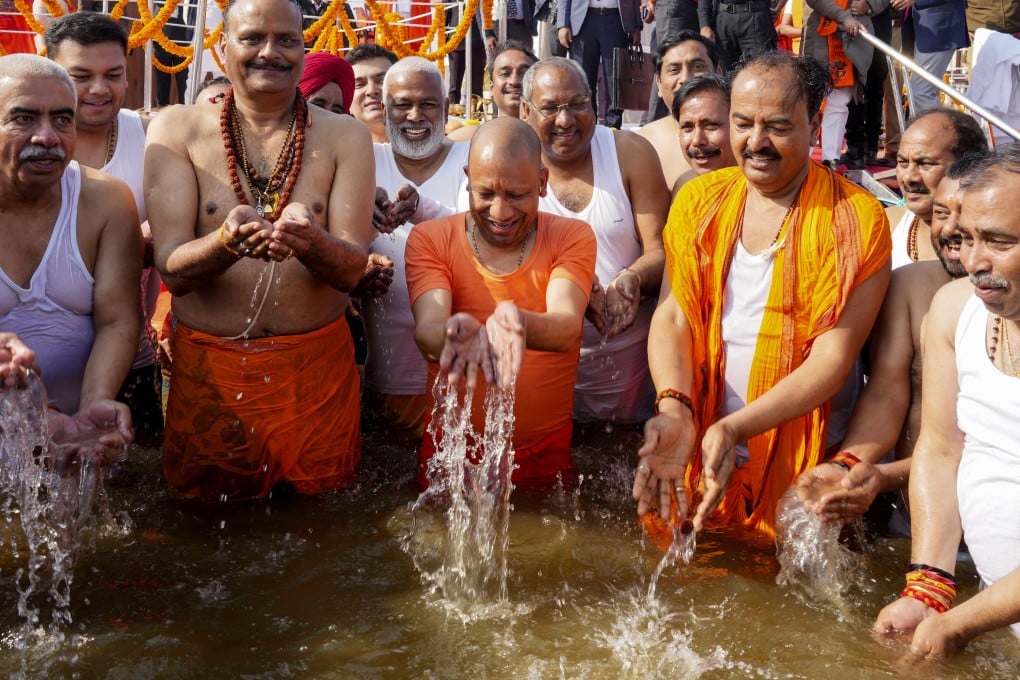Why a Hindu festival in India became a political controversy
Uttar Pradesh chief minister’s cabinet meeting and holy dip at the Maha Kumbh Mela a ‘disturbing convergence’ of state and religion, analysts say

India’s Hindu festival of Maha Kumbh Mela, which has drawn millions of devotees to a confluence of sacred rivers in the northern Uttar Pradesh state, is mired in political controversy after officials held a cabinet meeting at the site and ritually bathed in its waters.
State Chief Minister Yogi Adityanath held a special session in Prayagraj on January 22, after which his cabinet colleagues took a holy dip, sparking a war of words with Akhilesh Yadav, leader of the opposition Samajwadi party, who accused him of drawing political mileage by garnering attention.
The row comes months after the ruling Bharatiya Janata Party (BJP) suffered unexpected reversals in the politically important state in the parliamentary elections last year, despite the state’s core base of majority-Hindu voters. The BJP and its allies got 36 seats while the opposition INDIA alliance won 43, including 37 by Samajwadi.
Analysts say the move by Adityanath at the Maha Kumbh Mela – held every 12 years – and the subsequent bathing ritual may have only yielded mixed political dividends, though he might have succeeded in winning over some voters as he is also revered as a Hindu priest.
“The Kumbh Mela is being used as an opportunity for outreach, especially to build ties with sections of society who did not vote for the BJP,” said Nilanjan Mukhopadhyay, an independent political commentator. “It is a very disturbing convergence [of] state and religion.”
Holding a meeting of a constitutional body like the state cabinet at the religious site and then taking a ritual bath “for purification of sins” amounted to official patronage of what should be a personal act of devotion, he added.